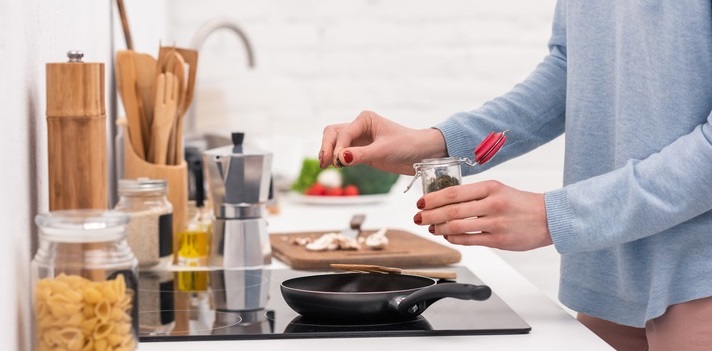4 ways to lower sodium intake and reduce risk of high blood pressure

According to the American Heart Institute, high blood pressure affects one in four Americans. High blood pressure can lead to heart disease and kidney disease and can increase your risk for stroke and heart attack.
Sodium has been shown to increase high blood pressure. The USDA recommends healthy adults limit their sodium intake to less than 2,400 milligrams, or about six teaspoons, daily.
Follow these four tips to decrease your sodium intake.
1. Rinse your canned vegetables.
Canned vegetables often come packaged with sodium in order to preserve the contents. Rinsing your canned vegetables before eating them is a good way to lower sodium intake. Keep an eye out for canned vegetables labeled as “low sodium” or “no salt added” as well.
2. Rethink your frozen dinner.
Although tasty, many frozen dinners contain as much as 30-75 percent of your daily recommended sodium intake. If you enjoy frozen dinners, read the back of the packaging and compare dinners for the lowest amount of sodium possible.
Frozen fruits and vegetables are great alternatives to frozen dinners because they contain less sodium and are lower in fat. However, it is important to read the labels of packaged frozen fruit or vegetables so that you can pick the food items with no added ingredients. For tips on reading a nutrition label, check out ChooseMyPlate.org.
3. Spice things up.
Using spices instead of salt to season food is an excellent way to avoid sodium. For example, try using garlic powder instead of garlic salt. Using fresh herbs and spices are a great way to make your food flavorful. Try this salt-free seasoning blend in your next dish.
4. Put the salt shaker down.
Many people want to salt their food before they even take a bite. Taste your food before you salt. Add a pinch if you think your food is still bland. A little goes a long way!




